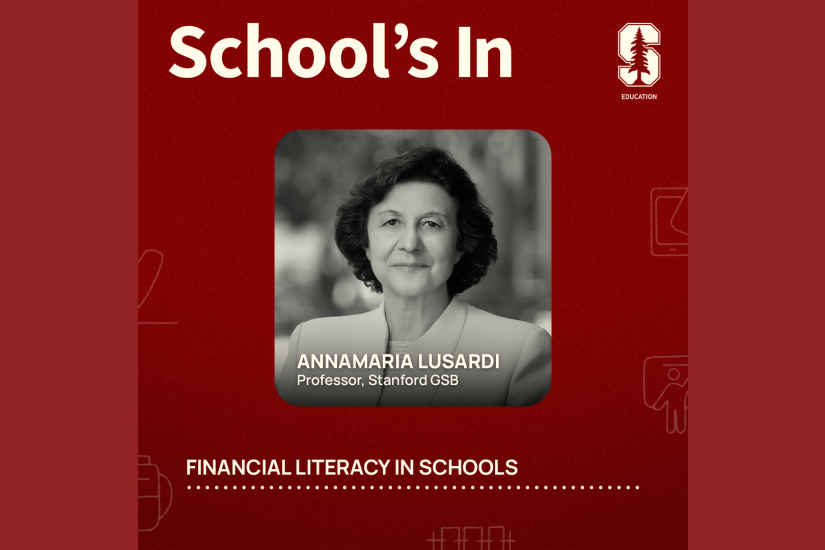
Can education be the great equalizer?
The widening income gap in the last three decades has led to a deepening academic divide between rich children and everyone else. But how exactly do the forces of rising inequality affect the educational opportunities and pathways of low-income and minority children? And can schooling still be the great American equalizer ensuring that all students can learn, develop and thrive?
The Workshop on Poverty, Inequality and Education seeks to find answers to these big questions. A new initiative of the Graduate School of Education, PIE is helping people understand how poverty and inequality influence one’s chances for academic success and the attainment of the American dream — and how families, schools and society can expand opportunity for all students.
“Although poverty and inequality play a powerful role in shaping our children’s educational opportunities, inequality is not inevitable, and poverty is not destiny,” said Sean Reardon, a professor of education who helped to establish the workshop. “Stanford is committed to building knowledge about how to reduce inequality and ensure that all children have an equal chance to succeed in school and lead productive, fulfilling lives.”
PIE will offer a broad introduction to issues concerning poverty, inequality and education through public lectures, panel discussions, film screenings and conferences. In addition, undergraduate and graduate students can enroll in a course offered throughout the 2013-14 academic year: the Poverty, Inequality and Education Workshop (EDUC 157x).
Taught jointly by GSE professors and initiative co-conveners Reardon, Prudence Carter, Jelena Obradović and Rachel Lotan, EDUC 157x will take on a different emphasis for each quarter. While the fall workshop examines social, economic and cultural factors, students enrolled in the winter course will consider developmental and psychological issues, and in the spring, they will study whether and how schooling can reduce the effects of poverty and inequality. Members of the general public are invited to attend any or all of the weekly sessions, and can access the course syllabus and readings online. (A login user-name and password are required to access the course readings.)
“Our goal is to facilitate a campus-wide conversation about these issues,” said Reardon, an expert in the causes and consequences of social and educational inequality. “We are bringing in speakers and events to focus that conversation on some of the best new research and the big ideas, challenges and controversies regarding how to address them.”
Fall Talks
As part of the course, the PIE workshop will present several talks this fall. All forums, listed below, are scheduled from 8:15 to 10 p.m. (note that locations vary):
- October 15: “Segregation and Integration, Topics in Spatial Inequality,” a talk by GSE professors Prudence Carter and Sean Reardon (Cummings Art Building, Room 4).
- October 22: “Educational Sufficiency or Equality,” a talk by Deborah Satz, Stanford philosophy professor and director of the McCoy Family Center for Ethics in Society (CERAS Learning Hall).
- October 29: “Trends in Social Mobility,” a talk by David Grusky, Stanford sociology professor and director of the Stanford Center on Poverty and Inequality (CERAS Learning Hall). The talk is co-sponsored by the Center on Poverty and Inequality.
- November 11: “Where is the Land of Opportunity? The Geography of Intergenerational Mobility in the United States,” a talk by Harvard economics professor Raj Chetty (CERAS Learning Hall). The talk is co-sponsored by the Center on Poverty and Inequality.
- November 19: “Measurement Issues: Mobility, Poverty and Inequality,” a talk by Sean Reardon (Cummings Art Building, Room 4).
Numerous Stanford events related to poverty, inequality, and education — including events co-sponsored by the Stanford Center on Poverty and Inequality, the Stanford Center for Education Policy Analysis, the John W. Gardner Center for Youth and Their Communities, and the Stanford Center for Opportunity Policy in Education — are also posted on the PIE website. Organizers are also tweeting and updating the website daily with current news and the latest cutting-edge research.
For more information about the Workshop on Poverty, Inequality and Education, visit http://edpov.stanford.edu/.



